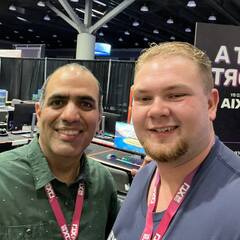The Types and Tiers of Hard Disk Drives for Consumers
Go to solution
Solved by NTDaws,
*To Be Updated June 1st, 2021"
-
Featured Topics
-
Topics
-
geoffery ·
Posted in Troubleshooting1 -
IPQ ·
Posted in Troubleshooting0 -
Joey__ ·
Posted in Troubleshooting1 -
83y ·
Posted in Troubleshooting0 -
JordanH015 ·
Posted in Troubleshooting4 -
0
-
kitty cat ·
Posted in Troubleshooting2 -
Felix09 ·
Posted in Graphics Cards5 -
SuperDerpBro ·
Posted in New Builds and Planning4 -
HawkyDragon ·
Posted in Troubleshooting0
-



















Create an account or sign in to comment
You need to be a member in order to leave a comment
Create an account
Sign up for a new account in our community. It's easy!
Register a new accountSign in
Already have an account? Sign in here.
Sign In Now